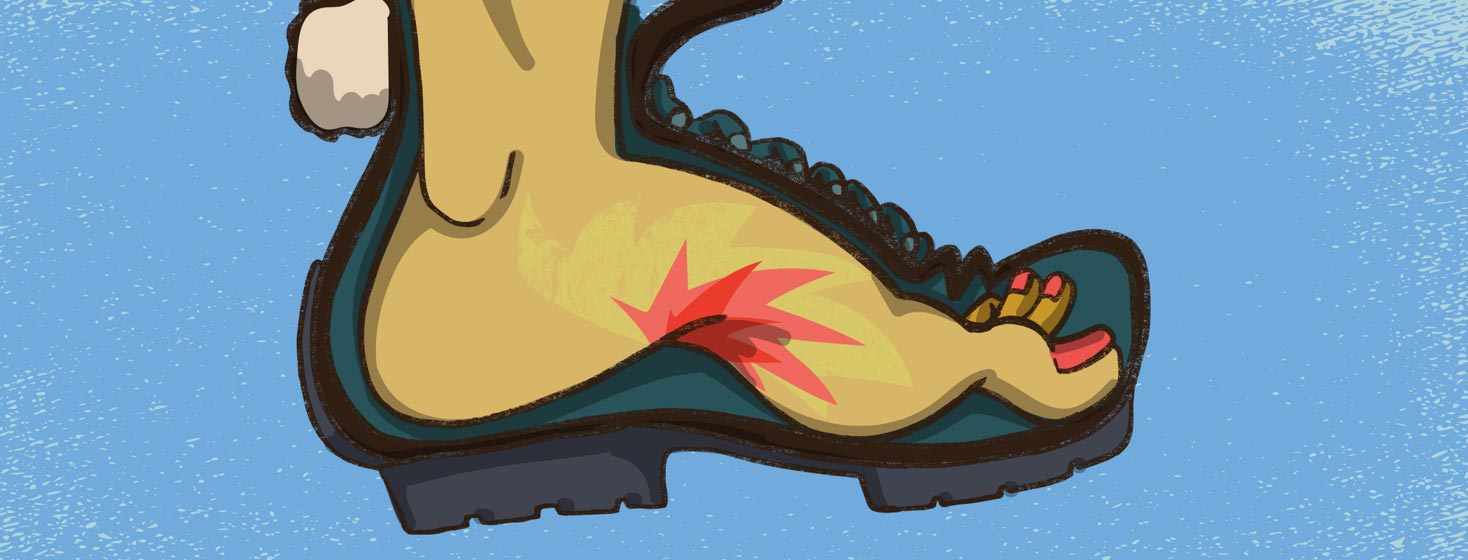Coping With Medication-Induced Muscle Cramps
I’m fortunate that most of my medications don’t generally cause side effects. Aside from occasional bouts of tachycardia (high heart rate) or shakiness with increased doses of my rescue inhaler or after doing nebulizer treatments, and maybe a bit more of a rasp in my voice (be that from over a decade of coughing or over a decade of inhalers) generally, the side effects I do find I experience from asthma medicines are pretty minor and not troublesome, except for my muscle cramps.
When I’m in the midst of or just tailing an exacerbation that requires me to use more rescue medicine than normal, like when I’m dosing every 4-6 hours, that’s when things get a little more interesting. I experience the most dreaded of the side effects I get from my inhaled meds: muscle cramps.
Which asthma medications cause muscle cramps?
Bronchodilators (beta-2 agonists, both long- and short-acting), are pretty well-documented to be linked to muscle cramps. It’s probably in the product monograph I haven’t looked at in 10 years.
A 2009 study indicated of 158 adults who were monitored over 1 year through asthma treatment reduction, 72% reported potential side effects of long-acting bronchodilators (compared to 83% reporting side effects from inhaled corticosteroids). Of these, the most frequent side effects experienced from bronchodilators were muscle cramping with 62% reporting, and 39% reporting “muscle twisting”. After a few days or weeks, most side effects of new or increased bronchodilator use decrease or resolve as our body adjusts to the medicine.1,2
Why do inhaled beta-2 agonists cause muscle cramps?
Well, the article I tried to read had a lot of big words I didn’t fully understand. As far as I gathered, the beta-2 agonists we inhale mostly work within the lungs, but once we inhale them, they have to go somewhere. As the residual medication makes its way throughout our body, it can both impact our electrolyte levels as well as cause neurons in our muscles to fire when they’re really not needed to, thank you very much, the latter of which is responsible for both the shakiness we can sometimes experience and the muscle cramping.3
Featured Forum
View all responsesWhat should I do about cramps from my medications?
Most of us with severe asthma, or anyone who has had a few exacerbations and experienced muscle cramps over the years, have figured out some tricks for making muscle cramps from medications less troublesome. As always, your pharmacist can help you manage the side effects of medications, and certainly speak with your doctor if they’re too troublesome. But beyond that, here’s what’s worked for me over the past decade.
My experience over the past decade
Usually, I experience muscle cramps in my legs or feet, and generally, they’re terribly timed. For example, when I have winter boots on, am lying in bed, or even having a bath! I try to stretch the affected muscle out as much as I can. If it’s in my foot, I stand up to put pressure on it while stretching (and if at all possible, remove shoes if I’m wearing them to allow me to flex or extend my foot as much as I can!).
If it’s a leg cramp the same generally applies but on rare occasions even pulling my toes up toward my leg and pushing against anything available, whether it’s the floor or even my blankets, can sometimes help. Depending on where the muscle is, you can also try massaging it (but I’ve always found stretching it out to work better). Usually, such muscle cramps are pretty short-lived, but can also be excruciatingly painful! I’ve had the occasional cramps in my hands as well but I find these much easier to deal with and they’re certainly nowhere near as frequent!
Consuming more electrolytes
Because of the electrolyte-imbalance theory of b2-agonist-induced muscle cramps, generally, the only time I drink sports drinks is if I’m having an asthma flare and either currently experiencing or anticipate experiencing muscle cramps due to increased bronchodilator use (unless I’m working outside at a summer camp or something in the heat!). Though, last year during my lung infection, I took to finding an internet recipe for a sports drink, then basically adding a pinch of salt to juice while waiting for my Gatorade to make its way to me!
As with anything, your results may vary, and of course, if you have other dietary or medical needs that require you to reduce sodium intake, talk to your doctor before changing anything about your diet.
Getting through medication-induced muscle cramps
Most of the time, muscle cramps are a sort of dose-response situation, so either they will resolve when you are able to back down on your inhaled beta-agonists (bronchodilators), or your body will adjust to prolonged higher doses. It’s just getting through the initial (sometimes horrendous) stages of pain, and having some strategies to get through it!
Have you experienced muscle cramps caused by your asthma medicine? What strategies have worked for you?

Join the conversation